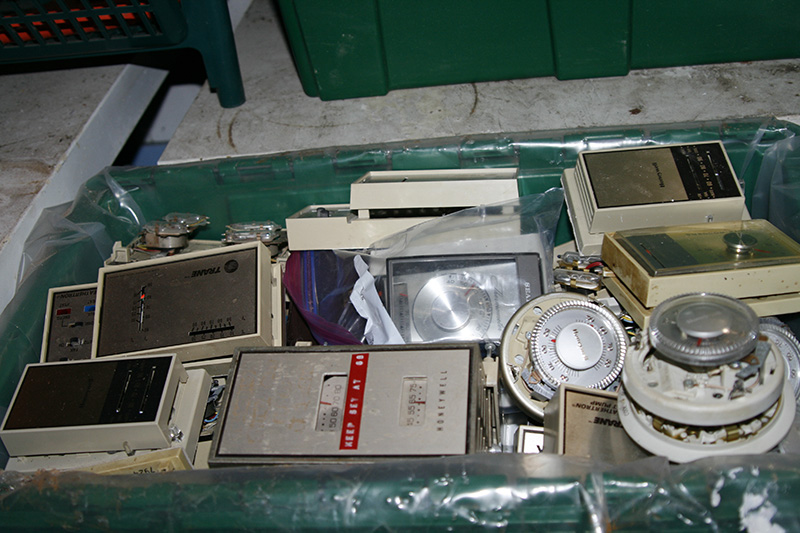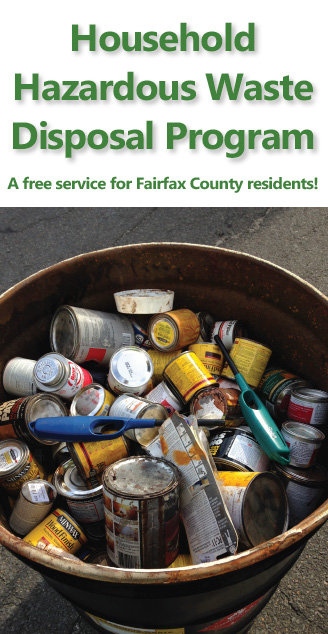Hours of Operation
Residents may take their household hazardous waste to one of the permanent collection sites.
I-66 Transfer Station
Household Hazardous Waste Hours | OPEN 6 Days (Sunday, Monday, Tuesday, Thursday, Friday and Saturday)
Mon. 7 a.m. - 5 p.m.
Tue. 12 p.m. - 5 p.m.
Thu. 12 p.m. - 5 p.m.
Fri. 7 a.m. - 5 p.m.
Sat. 7 a.m. - 4 p.m.
Sun. 7 a.m. - 4 p.m. CLOSED on Wednesday |
|---|
I-95 Landfill Complex
Household Hazardous Waste Hours | OPEN 2 Days (Wednesday and Saturday)
Wed. 7 a.m. - 5 p.m.
Sat. 7 a.m. - 4 p.m. CLOSED on Monday, Tuesday, Thursday, Friday, Sunday Latex Paint ONLY Drop-off - Lot B
Mon. - Fri. 7 a.m. - 5 p.m.
Sat. & Sun. 7 a.m. - 4 p.m. |
|---|
Download Household Hazardous Waste Disposal Program Brochure
What is Household Hazardous Waste?
Household hazardous waste refers to used or leftover contents of consumer products that contain materials with one of the four characteristics of a hazardous waste: toxicity, ignitability, corrosivity or reactivity. (Visit Hazardous Waste | Virginia DEQ for more information.) Household hazardous waste should not be disposed of in the regular trash.
The Fairfax County Household Hazardous Waste Program accepts hazardous materials from residents free of charge and disposes or recycles them according to all local, state and federal regulations.
 Household hazardous waste is best managed when it is collected separately from regular municipal solid waste so that it can be sent to facilities capable of properly disposing of hazardous wastes. If handled properly, the likelihood that these potentially-harmful compounds will enter the environment is significantly decreased.
Household hazardous waste is best managed when it is collected separately from regular municipal solid waste so that it can be sent to facilities capable of properly disposing of hazardous wastes. If handled properly, the likelihood that these potentially-harmful compounds will enter the environment is significantly decreased.
The safest way to dispose of household hazardous wastes is to carefully pack them up and bring them to one of the county's Household Hazardous Waste Collection Sites at I-66 Transfer Station and I-95 Landfill complex.



